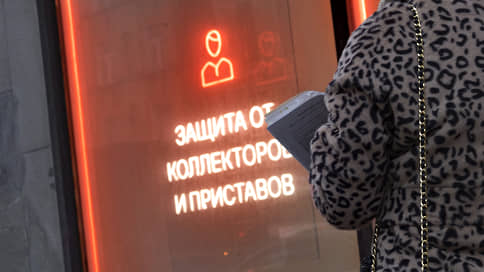NSFR against the prohibition of MFIs and collectors to collect debts through court orders

Participants in the financial market insist on the rejection of a bill prohibiting collectors and microfinansists to use judicial order proceedings. In relevant associations, it is believed that the adoption of the law will result in a violation of the rights of the collectors, an increase in the load on the judicial system and unnecessary legal costs for debtors. Defenders of the rights of borrowers do not agree with this.
At the disposal of Kommersant was the review of the National Council of the Financial Market (NSFR) for a bill prohibiting microfinance organizations (MFIs) and professional collector organizations (PKO) to recover debts through order production. Reviews for the bill were dated June 11 and sent to the State Duma and directly to the chairman of the State Duma Committee on State Construction and Legislation Pavel Krasheninnikov.
The corresponding bill was submitted to the State Duma by a group of deputies at the end of May. Amendments are offered to Art. 122 Code of Civil Procedure of the Russian Federation and exclude the right to receive a court order, when the plaintiff is the MFI or PKO. Now any recoverer is entitled with a debt amount of not more than 500 thousand rubles. Based on a simple written transaction, submit an application for the issuance of a court order. “The main feature is that the consideration of the case is carried out without calling the parties,” the authors of the bill say, indicating that the defendant often finds out the presence of an executive document in relation to him already at the stage of enforcement proceedings. “In practice, conflict situations often arise … There are a large number of professional procedural tricks that allow not to receive judicial orders to the defendants on time in order to have time to cancel it,” the explanatory note to the project emphasizes.
In the NSFR, they categorically disagree with the proposals of deputies. They indicate that they lead to « violation of the principle of equality of procedural possibilities. » But what is especially important that the adoption of the bill will lead to a significant increase in the load on the judicial system, as well as to the additional costs covered by budget funds. “The consideration in the order of claim will lead to a sharp increase in the load on the judicial system – from 151 thousand cases a year to 15 million cases a year, that is, not 100 times,” the NSFR is noted. “In the future, the load will constantly increase that the consideration of cases in the lawsuit occupies about six times more in time than the order proceedings.” The adoption of the bill will significantly increase the costs of borrowers and debtors, since the size of the court duties in the lawsuit is twice the amount of duties in the order production – 2 thousand rubles. In the lawsuit, the size of the fee is at least 4 thousand rubles, but it may be more, since it depends on the price of the claim and reaches 3% of it. The NSFR proposes to reject the bill.
It was not possible to quickly get comments on the regulators of the MFIs and PKO – the Central Bank and the FSSP – “Kommersant”.
The MFIs and PKOs are sure that this bill will not help the operational notification of debtors about court proceedings. “The problem when the orders come to the wrong address or find out about them later, is recognized in the SRO“ Mir ”(the largest SRO in the MFI market).“ However, its reason is that often customers in the process of servicing the debt change the place of residence or phone number and consciously not notify the creditor about it. ” Obviously, to solve the problem, you do not need to start with prohibitions, but it is worth establishing a notification process, are sure there. “They resort to the court of PPO only in an extreme case, when a client who has overdue debts does not get in touch or refuses interaction,” they assure the National Association of Collection Agencies. “According to our statistics, PCOs turn to a simplified recovery procedure in only 6% of cases.”
However, the project also has supporters who are directly familiar with the problems of the order judicial penalty. “Order production for commercial debts, in our opinion, infringes on the rights of debtors of banks and MFIs. Given the scale and variations of fraud schemes, a citizen may not know that the borrowing agreement has been drawn up in his name, ”the expert of the Popular project“ for the rights of borrowers ”Alexander Pozharskaya indicates.“ Therefore, in the case of commercial debts, it is much more fair to find out the nature of the debt and the validity of the claims of the creditor ”.







